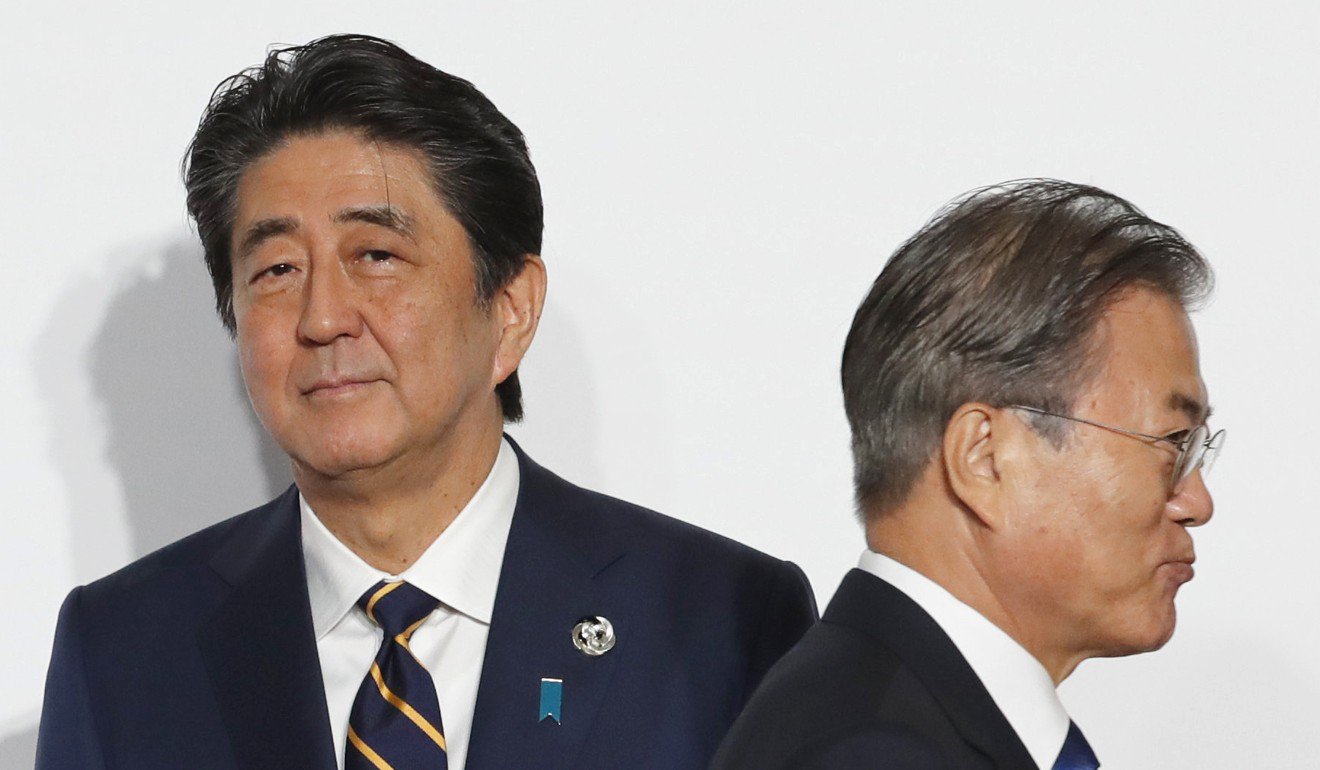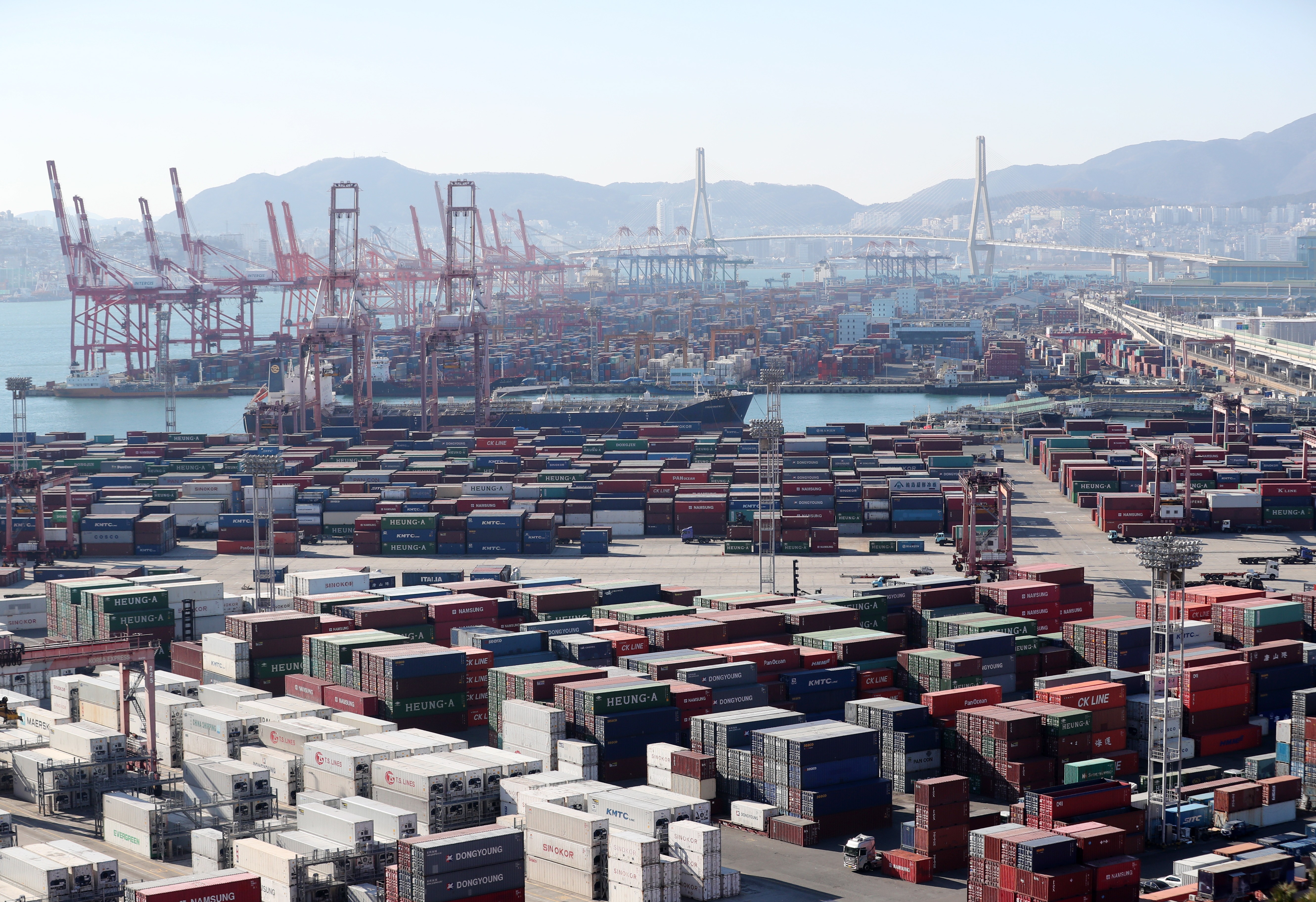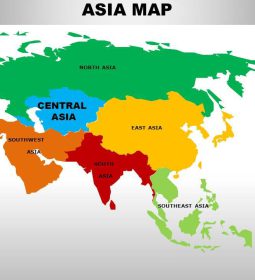Geopolitics: China can win a ‘trade war’ between Japan and South Korea

- Chinese companies including Huawei are well-placed to capitalise as Seoul and Tokyo take aim at each other’s tech firms, analysts say
- Meanwhile, Beijing’s diplomats have another reason to smile
With Tokyo’s export restrictions on South Korean firms likely to prove mutually destructive, Chinese manufacturers could gain a competitive edge, according to analysts, while the souring of relations between two key US allies is likely to leave Beijing’s diplomats rubbing their hands.
The deepening row promises a headache not only for South Korean tech behemoths like Samsung and LG Display – both of which are heavily reliant on Japanese suppliers – but also for Japanese firms, which will need to find new customers and could see their own supply chains disrupted if relations continue to sour.
With the tit-for-tat measures compromising the tech industries of both countries, experts say Chinese manufacturers – and particularly the country’s nascent semiconductor industry – would be among the best placed to fill the void.
WHAT’S AT STAKE
In response, Tokyo has said it will impose export restrictions on three materials: fluorinated polyamides, used in smartphones; photoresists, used in semiconductors; and hydrogen fluoride, used in semiconductors. South Korean firms are heavily reliant on Japan for all three – in May, the country sourced 94 per cent of fluorinated polyamides and 92 per cent of photoresists from Japan, according to the Korea International Trade Association.
MUTUAL DESTRUCTION
However, the reliance isn’t just one way. Ryo Hinata-Yamaguchi, a visiting professor of the College of Economics and International Trade at Pusan National University in South Korea, said the row between Tokyo and Seoul would be mutually destructive.
“Japan has been a source of chemicals and manufacturing technologies that are vital to South Korean industries, while for Japan, South Korea is a vital market for exports,” Hinata-Yamaguchi said.
That point was backed up by June Park, a lecturer specialising in international political economy at George Mason University Korea, who said the two countries’ tech industries were “very much connected and complementary”. For instance South Korean firms buy materials from Japan to produce semiconductors that are often sold back to Japanese companies.
WHY CHINA BENEFITS
Analysts say this intense trade battle will ultimately benefit Chinese manufacturers.
At the core of that plan is its semiconductor industry. Under the Made in China 2025 plan, Beijing aims to produce 40 per cent of the semiconductors it uses by 2020 and 70 per cent by 2025 – up from less than 10 per cent at present.
Analysts say this aim will be boosted if tensions between Tokyo and Seoul disrupt global supply chains, as Chinese firms will step in to the vacuum.
“If we limit the ongoing trade conflict to a short-term squeeze on the South Korean semiconductor industry, we can anticipate that if South Korea’s performance on the global market is restricted, China may seize the opportunity to climb to the top,” Park said. “China certainly has motivations to up its game in the semiconductor industry … time will tell whether China becomes the sole beneficiary in this process,” Park said.
If China can take advantage of the present tensions, it would merely be continuing a decades-long jostling of power between the three countries in the semiconductor industry. In the 1990s and 2000s, Japan was dominant; from the 2010s South Korea has been in the ascendancy.
“The semiconductor industry is very complex and industry leadership has been shifting time and again during the past four decades,” Park said.
And, with both Tokyo and Seoul threatening further retaliation, some analysts wonder whether now is China’s time to lead.
“We may be able to consider a situation where Huawei tries to secure its semiconductors from elsewhere and catapults itself to becoming an indigenous developer in the process,” said Park.
DIPLOMATIC GAINS
Industry aside, there are also the geopolitical gains for China to consider.
“Geopolitically, negative relations between Japan and South Korea would benefit China as [Beijing] has always been sensitive to close relations between Seoul and Tokyo that could evolve into a quasi-alliance,” said Hinata-Yamaguchi.
“Japan and South Korea have been in a state of diplomatic paralysis for a long time. However, the deterioration of economic relations between the two would not only cause economic problems on both sides – it would [plunge] bilateral ties to a whole new [low],” Hinata-Yamaguchi said.
“Given the collateral economic damage and risk of the situation worsening, it is vital for the two governments to restore relations. Yet given the myriad, politicised problems that have plagued the relations, both governments will need to take bold measures to salvage the strategically important bilateral ties.
“At the end of the day, how much China benefits from the conflict between Japan and South Korea depends on how much worse relations get,” Hinata-Yamaguchi said
- Previous Saudi-Turkish row affects turkic speaking Uighurs: Saudi Arabia defends letter backing China’s Xinjiang policy
- Next Russia denies its troops are fighting in northwest Syria


















